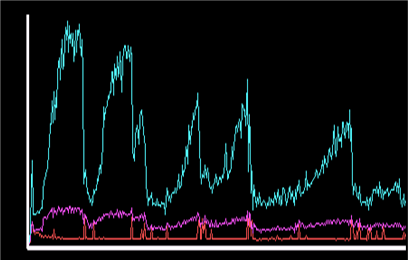What is sleep slow-wave activity?

Although the function of sleep and its component stages is not yet fully understood, slow-wave sleep or N3 sleep has been shown to be of critical importance. Slow-wave sleep is our most restorative sleep and ample evidence suggests it is central to memory consolidation, immune functioning, and neuroplasticity.
Slow-wave activity (SWA), or power in the delta frequency (0.5-3.9 Hz), is the underlying frequency pattern characteristic of slow-wave sleep and is considered a marker of sleep need.

In healthy adults, SWA is high at the beginning of the sleep period and decreases monotonically until waking. This dissipation of SWA is suggested to reflect the recovery function of sleep. Although critically important, SWA decreases across adulthood. Reductions in SWA have also been described in several psychiatric and neurocognitive disorders with central memory impairments including major depressive disorder, schizophrenia, and alcoholism. However, it has yet to be determined if these reductions in SWA contribute to the development of these disorders or rather, are a physiological consequence.


